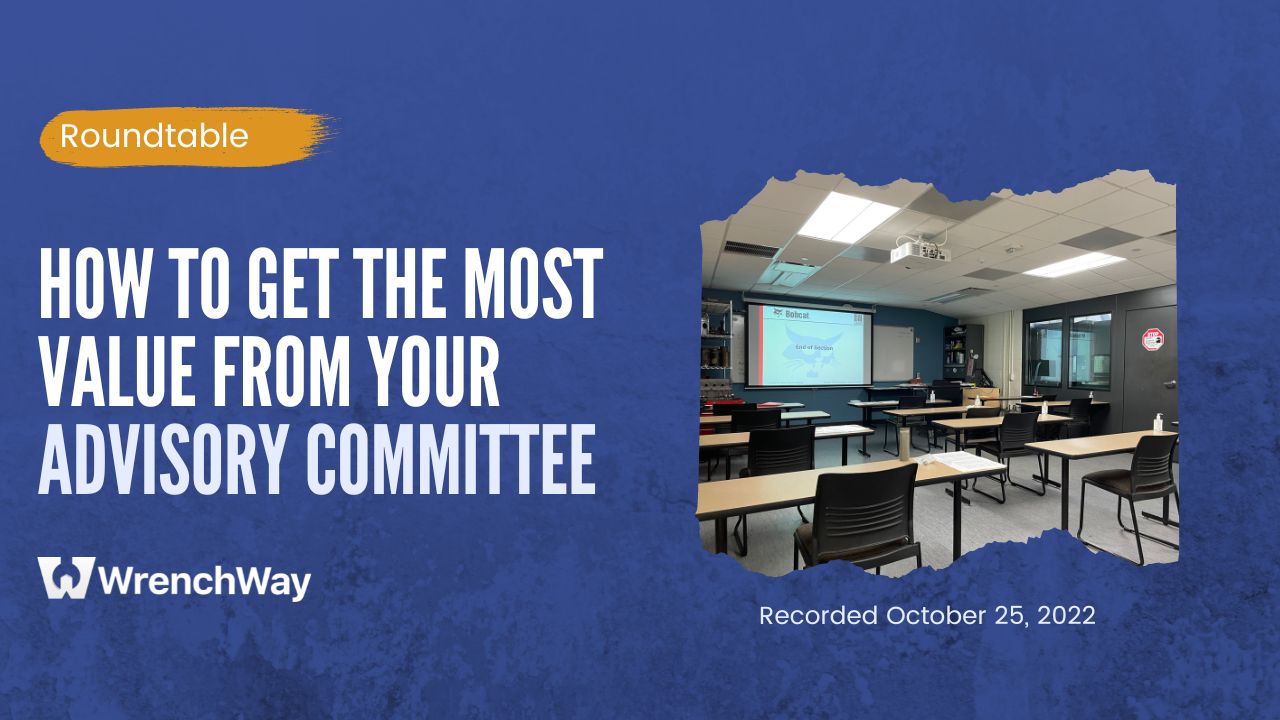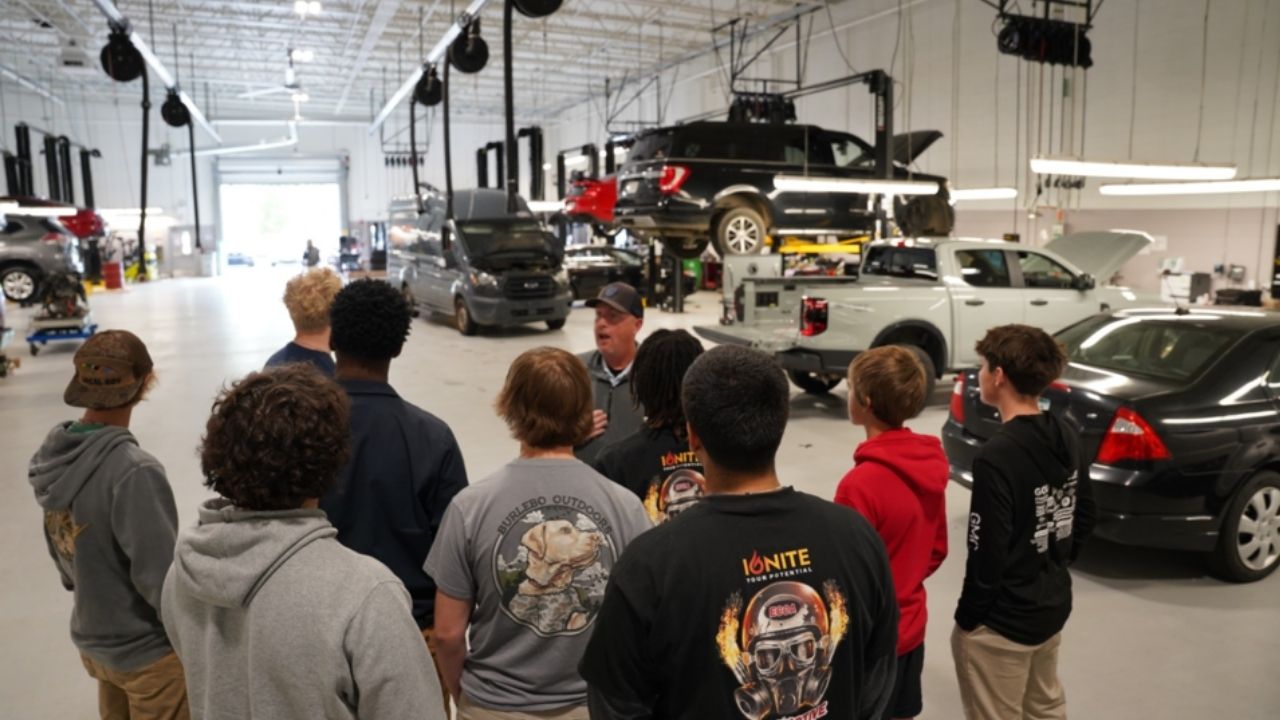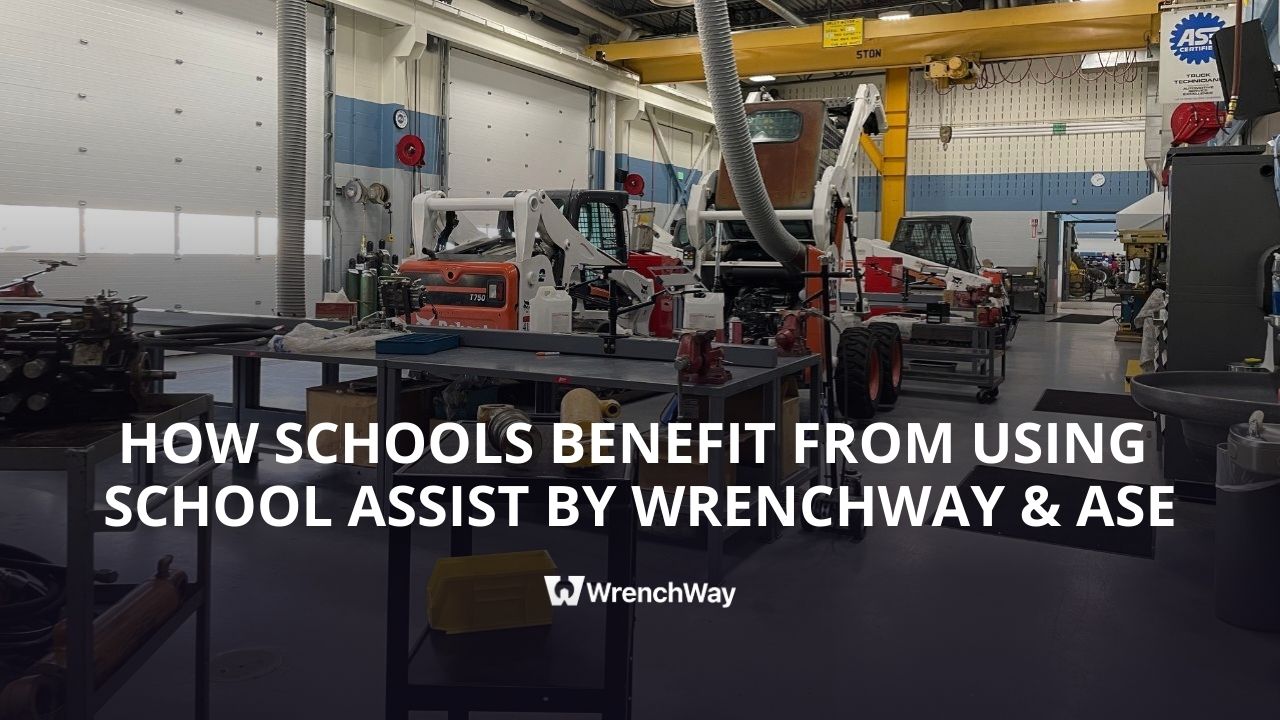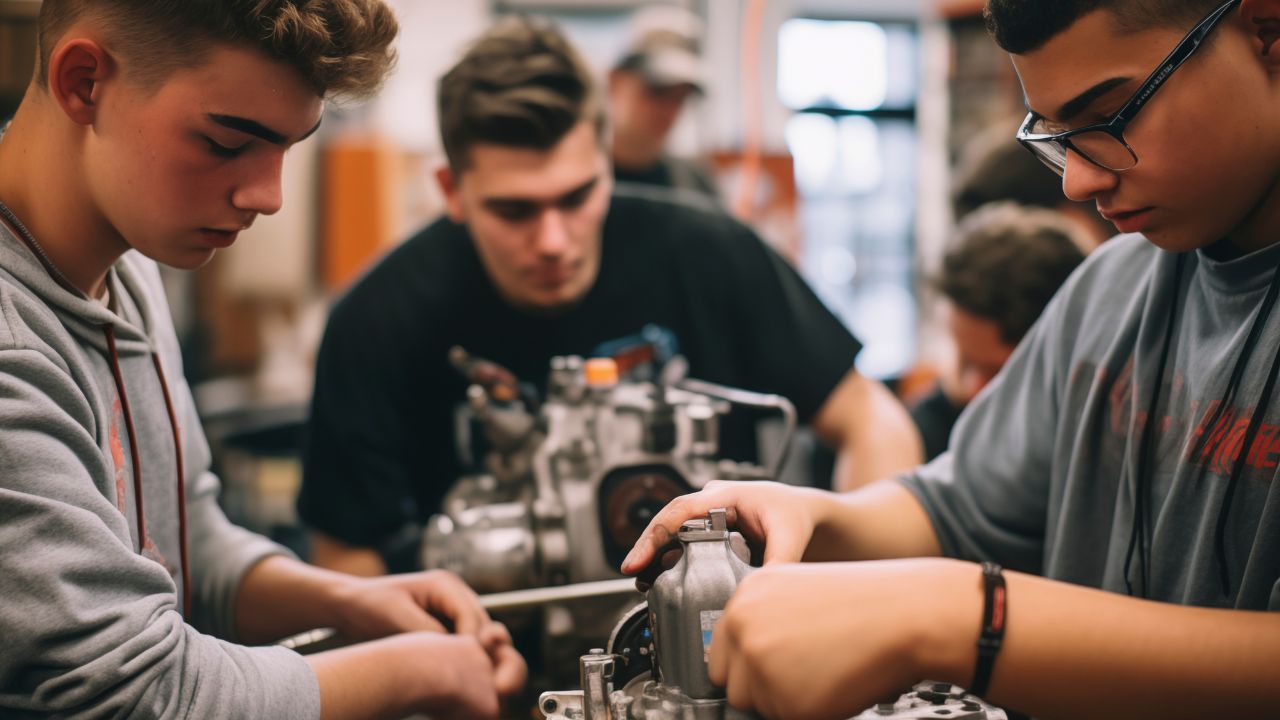Recently, three amazing automotive educators joined us to discuss how to drive engagement at advisory committee meetings. Check out the full recording and event highlights below.
Watch the Recording
Importance of a Strong Advisory Committee
- Advisory committees allow instructors to develop industry partnerships. Those partnerships can act as advocates for you and your program.
- Not only do advisory committees tie you to the community, but it shows administration there are a lot of jobs available in this field.
- When instructors need something for their program, it’s not the instructor who needs it, it’s the kids. Instructors need to use their advisory committee when they need help and support with their program.
- Advisory committees help justify an instructor’s investment. Instructors are spending taxpayer dollars. It’s important to hear from the community and industry on what is important to them.
Create and Maintain Relationships
- Advisory committee meetings bring together a wide variety of people and multiple perspectives. It’s all about building relationships. Choose people you could form great relationships with and people who bring a lot of wisdom from the industry.
- Have bi-weekly check-ins and provide updates on your program. The advisory committee should have constant communication outside of the meetings.
- Get out of the classroom and meet people on their terms. Expand your advisory committee to technicians, shops, and HR. Don’t only look at dealers and independent shops. Look at fleets and companies that need your students.
- Invite people to be guests on your advisory committee or to come and tour your facility and program. Never stop trying to build new relationships.
How to Run an Effective Advisory Committee Meeting
- People are taking their time to go to these meetings and they want to give their input. Send questions before the meeting to get people thinking. Utilize their knowledge and take advantage of it.
- Meetings should be informational and conversational. It’s important to give updates and make the public aware of what you’re doing in your program. People come because they want to be a part of something and give input.
- You have to ask, “What’s in it for me?” Start with what you want to accomplish at each meeting and work backward to create your agenda.
- Schools feel like it’s their job to run the advisory meeting, and it should be the other way around. The industry should be driving the meetings and letting instructors know what they need from their students.




